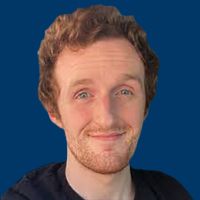Metastatic Melanoma: Clinical Pearls From the Experts
Transcript:
Jeffrey S. Weber, MD, PhD: This has been an excellent discussion. Before we end, I’d like to ask each of the panelists for a pearl, for any additional insight, regarding their expectations for the future management of advanced melanoma. Dr. Robert Andtbacka?
Robert H.I. Andtbacka, MD, CM: I think that for all of us who treat melanoma patients, the past 10 years have been a dramatic shift compared to what we had previously. And I think that we have a lot more hope for our patients now. I still think we need to remember, though, that of the patients with metastatic melanoma, over half still succumb to this disease. We have a lot more work that still needs to be done.
And also, when I talk to my patients, I say there are 4 things that we want to accomplish with the therapy that we choose. We want to find the best treatment for our patient. We want to find a treatment that actually gives them a cure. We want the melanoma to go away and never come back. We also want to do this with the least amount of side effects for the patients, and I think, most importantly, since we don’t have treatments yet that work for everyone, not to burn any bridges down the line. That’s something that also I encourage my colleagues in the community to think about as well; that you don’t burn bridges down the line for our patients. I think the next 5 to 10 years will see further dramatic shifts, and we are finally getting to the point where we may potentially talk about long-term, durable responses and potentially cures for patients with melanoma.
Jeffrey S. Weber, MD, PhD: Dr. Mike Davies?
Michael A. Davies, MD, PhD: Just to focus on an area that I have particular interest in, that may not be something that everyone is aware of, we touched briefly on the concept of neoadjuvant therapy for patients with high-risk regional disease. Again, I think we’ve made tremendous progress for patients with stage 4 disease, and in the next few years, we’ll get the readout from adjuvant trials that are likely going to change the standard of care for adjuvant therapy as well. There’s a new opportunity, but potentially a new paradigm, for neoadjuvant therapy, which is standard-of-care in several other diseases, not only because of its efficacy, but also because it actually gives you a rational way to guide what you use in the adjuvant setting. And I think, with the new agents we have, that we have new opportunities with initial trials showing very promising results. And so, in the future, we may have a paradigm shift in those patients to neoadjuvant approaches.
Jeffrey S. Weber, MD, PhD: Dr. Georgina Long?
Georgina Long, MD, PhD: I agree with exactly what Robert and Mike have said. To add a new pearl, I would like to emphasize that yes, 50% of patients are not doing well. We’ve still got a lot more work to do. And patients really should be considered for clinical trials. I think that’s critical. The neoadjuvant platform is also a wonderful platform to explore doublets and triplets very quickly, and patients need to be managed in a multidisciplinary team setting as things get complicated. And although the drugs are seemingly very easy to give and there are long-term survivors, I still think those patients should be managed in a multidisciplinary team setting so that if things get complicated, they’re in the right place and have access to clinical trials. We need to push the field forward. We’re going for cure.
Jeffrey S. Weber, MD, PhD: Dr. Jason Luke?
Jason J. Luke, MD: Well, I think I’m in a position of seconding what all my colleagues said. But to hit quickly on the points, I think now, more than ever, we need patients to participate in clinical trials. We have so many hypotheses that make a lot of sense and could really advance the field rapidly as long as we continue to accrue for these trials. So, I really can’t stress that enough. But dovetailing with that, it’s not just patients who have metastatic disease. Absolutely, for patients who have high-risk disease and even patients potentially in the neoadjuvant setting, it’s coming to the community through the Cooperative Groups very soon. This is not a pie-in-the-sky. We really need to be able to reach out and get patients from all stripes to participate.
Robert H.I. Andtbacka, MD, CM: Jeff, can I add one point to that? I think the one thing we haven’t focused on as much at this session is really the question of prevention, preventing patients from developing melanoma in the first place, and early detection. I think that’s also a field that we really need to, as melanoma experts, push forward and really emphasize that it’s ultimately how we prevent patients from developing stage 4 disease.
Jeffrey S. Weber, MD, PhD: Well, I would certainly agree with you, and a wise man—who is actually a surgeon and one of my mentors—once said, “The best way to deal with cancer is not to get it in the first place.” So, I think on behalf of our panel, we thank you for joining us and hope that you’ve found this Peer Exchange® to be useful and informative. Thank you very much.
Transcript Edited for Clarity



